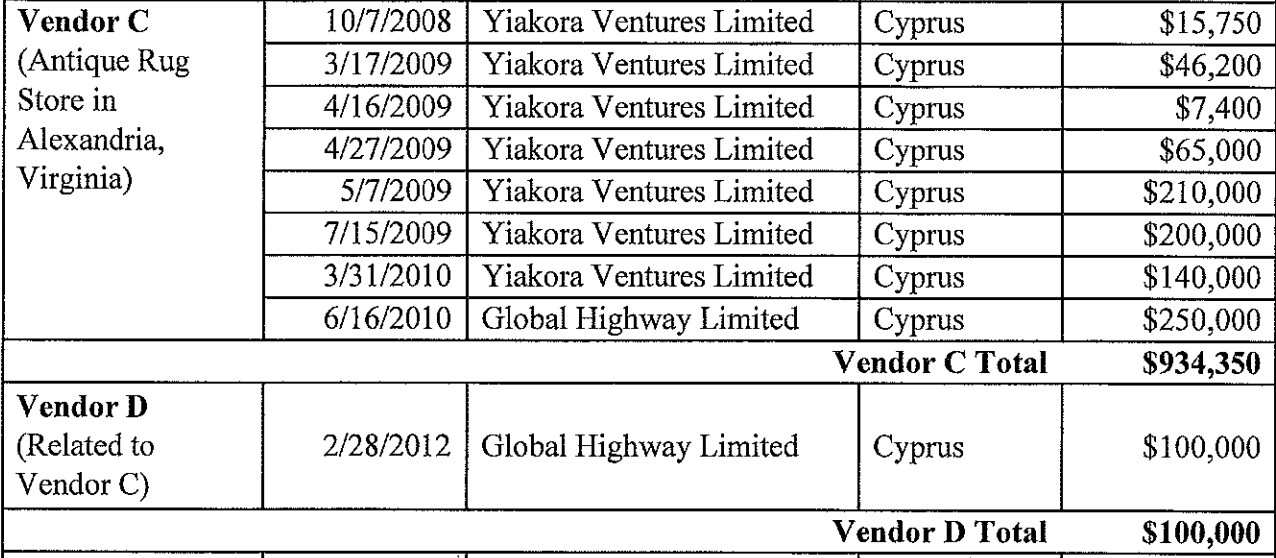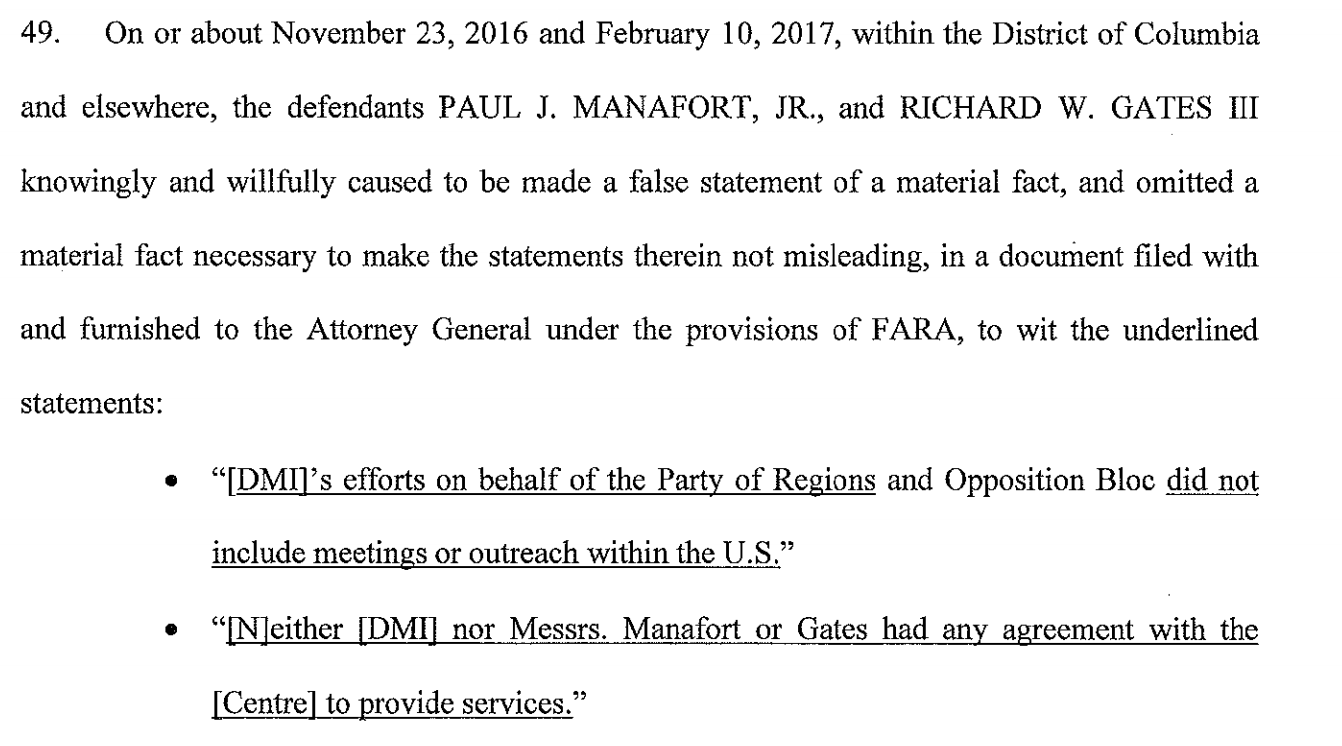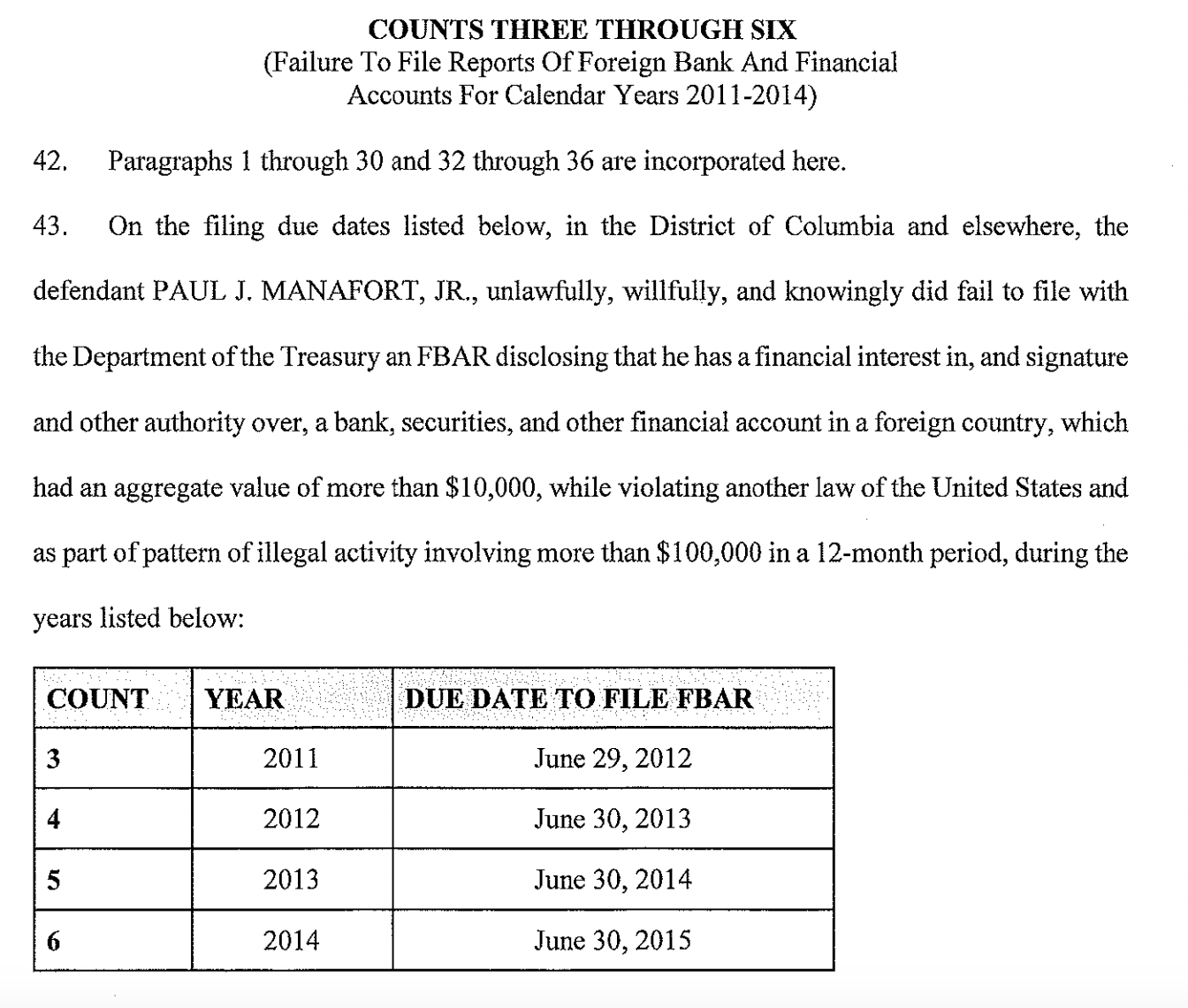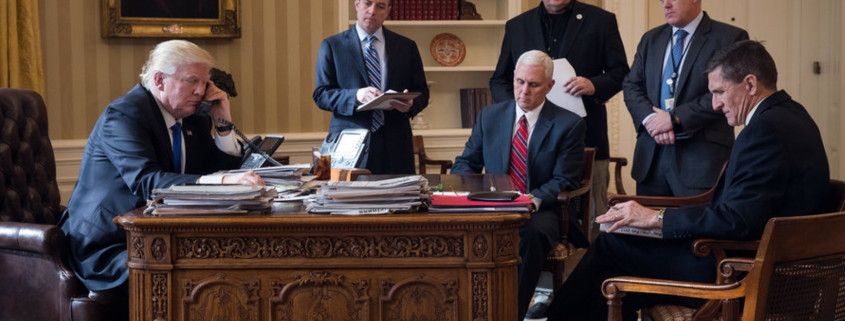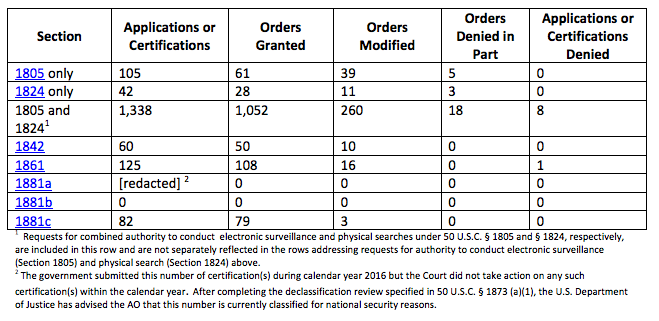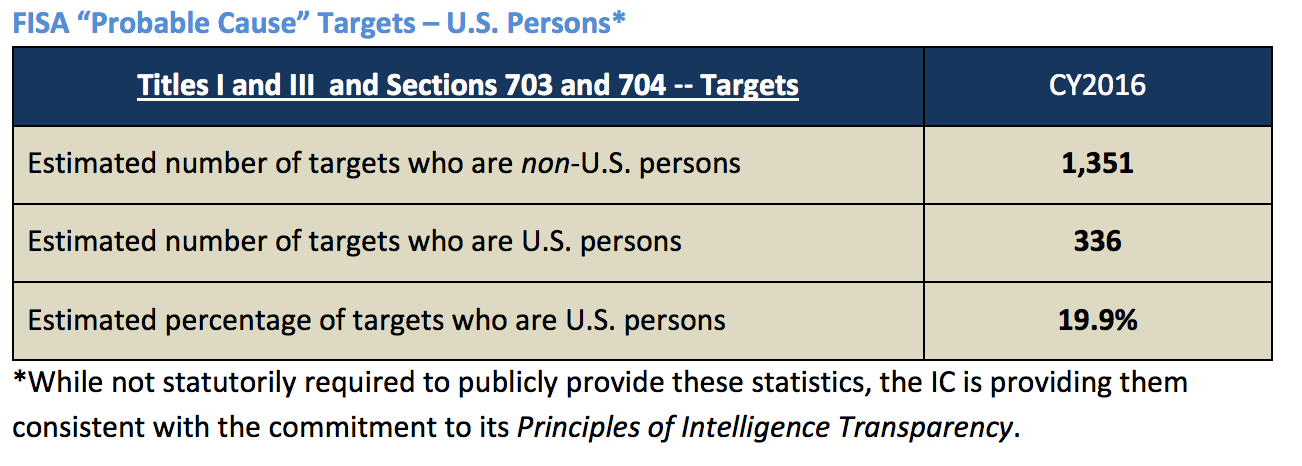People are shooting off their baby cannons in excitement with the news that Facebook turned over information to Robert Mueller that they didn’t turn over to Congress. The excitement comes, apparently, from the perception that if Mueller got more stuff than Congress, he must have gotten a probable cause search warrant, something implied — but not at all stated affirmatively — in this WSJ article.
Facebook Inc. has handed over to special counsel Robert Mueller detailed records about the Russian ad purchases on its platform that go beyond what it shared with Congress last week, according to people familiar with the matter.
The information Facebook shared with Mr. Mueller included copies of the ads and details about the accounts that bought them and the targeting criteria they used, the people familiar with the matter said. Facebook policy dictates that it would only turn over “the stored contents of any account,” including messages and location information, in response to a search warrant, some of them said.
A search warrant from Mr. Mueller would mean the special counsel now has a powerful tool in his arsenal to probe the details of how social media was used as part of a campaign of Russian meddling in the U.S. presidential election. Facebook hasn’t shared the same information with Congress in part because of concerns about disrupting the Mueller probe, and possibly running afoul of U.S. privacy laws, people familiar with the matter said.
CNN similarly asserts that Mueller would need a warrant, without actually reporting any confirmation from Facebook that that’s what has happened.
Facebook gave Mueller and his team copies of ads and related information it discovered on its site linked to a Russian troll farm, as well as detailed information about the accounts that bought the ads and the way the ads were targeted at American Facebook users, a source with knowledge of the matter told CNN.
The disclosure, first reported by the Wall Street Journal, may give Mueller’s office a fuller picture of who was behind the ad buys and how the ads may have influenced voter sentiment during the 2016 election.
Facebook did not give copies of the ads to members of the Senate and House intelligence committees when it met with them last week on the grounds that doing so would violate their privacy policy, sources with knowledge of the briefings said. Facebook’s policy states that, in accordance with the federal Stored Communications Act, it can only turn over the stored contents of an account in response to a search warrant.
“We continue to work with the appropriate investigative authorities,” Facebook said in a statement to CNN.
Even in the criminal context, it’s not at all clear Mueller would need a probable cause search warrant. Here’s what WSJ and CNN said Facebook gave Mueller:
- Copies of ads (which according to some reports, Facebook showed, but did not leave, with Congress)
- Details about the accounts that bought them
- Targeting criteria used to buy them
Both WSJ and CNN take from these details that Facebook treats these things — which are what the Internet Research Association and other fake subscribers included in their communications conducting an advertising transaction with Facebook — as “stored contents of an account” or “messages and location information.”
Given that these are communications with Facebook, not with the fake subscribers’ fake friends, it’s not at all clear that’s this would count as content. Here’s what Facebook gets asked for (and presumably delivers) in response to a 2703(d) order on an average real American, like Reality Winner.
A. The following information about the customers or subscribers of the Account:
1. Names (including subscriber names, user names, and screen names);
2. Addresses (including mailing addresses, residential addresses, business addresses, and e-mail addresses);
3. Local and long distance telephone connection records;
4. Records of session times and durations, and the temporarily assigned network addresses (such as Intemet Protocol (“IP”) addresses) associated with those sessions;
5. Length of service (including start date) and types of service utilized;
6. Telephone or instrument numbers (including MAC addresses);
7. Other subscriber numbers or identities (including temporarily assigned network addresses and registration Intemet Protocol (“IP”) addresses (including carrier grade natting addresses or ports)); and
8. Means and source of payment for such service (including any credit card or bank account number) and billing records.
B. All records and other information (not including the contents of communications) relating to the Account, including:
1. Records of user activity for each connection made to or from the Account, including log files; messaging logs; the date, time, length, and method of connections; data transfer volume; user names; and source and destination Intemet Protocol addresses;
2. Information about each communication sent or received by tbe Account, including tbe date and time of the communication, the method of communication, and the source and destination of the communication (such as source and destination email addresses, IP addresses, and telephone numbers). Records of any accounts registered with the same email address, phone number(s), method(s) of payment, or IP address as either of the accounts listed in Part I; and
3. Records of any accounts that are linked to either of the accounts listed in Part I by machine cookies (meaning all Facebook/Instagram user IDs that logged into any Facebook/Instagram account by the same machine as either of the accounts in Part I).
What would “all records and other information” relating to the account entail for an ad purchaser? After all, the fake account is not posting the ad, Facebook is. The fake account is using Facebook targeting criteria — again, communicating with Facebook, not its fake friends.
And if this is how Mueller got the Facebook data, it would be available with approval from a grand jury (and we know he’s got several grand juries lying around), with a relevance — not a probable cause — standard.
And that’s only if you’re talking criminal context. WSJ and CNN refer to Facebook’s privacy policy, which for legal reasons doesn’t cite all the ways they turn over data. In assuming that Mueller had to use a search warrant, both outlets are ignoring another obvious authority: Section 702.
We’re talking accounts believed (by both Facebook and the government) to be run by the Internet Research Association. The Intelligence Community Assessment on Russian tampering states, even in the unclassified version, that they believe IRA has ties to Russian intelligence.
- The likely financier of the so-called Internet Research Agency of professional trolls located in Saint Petersburg is a close Putin ally with ties to Russian intelligence.
But even without that, we’re talking a foreign corporation engaging in activity that everyone involved agrees has foreign intelligence value, with most people claiming that they knowingly took part in an intelligence influence operation run by Russian spooks.
That’s solidly in the realm of what gets tasked, all the time, under Section 702’s Foreign Government certificate. Hell, using 702, Mueller could get the contents of the messages sent by the fake accounts to their fake friends, as well as anything else private in their accounts (and a whole lot more).
And the standard for 702 is not probable cause, it is foreigner (including foreign corporation) located overseas of foreign intelligence purpose.
I know everyone badly wants to assume Mueller has indictments in his back pocket, and so therefore are seeing criminal probable cause where there may be none (and where none is required). But both of these articles make certain assumptions about how Facebook treats ad transactions and, making those assumptions, rule out the 2703(d) order. And both of these articles are ignoring the availability of everything in IRA’s accounts — content or no — under Section 702.
Update: I believe these misleading leaks are coming from Congress, rather than from Facebook or Mueller. Note, for example, this WSJ explanation for why Facebook gave Mueller more than they gave Congress:
Facebook hasn’t shared the same information with Congress in part because of concerns about disrupting the Mueller probe, and possibly running afoul of U.S. privacy laws, people familiar with the matter said.
The concern about disrupting the Mueller probe would not be Facebook’s. It’d be Mueller and Congress’.
With that in mind, consider this article, from Bloomberg, which I also found sketchy. It claims that Mueller’s investigation has a “red-hot” focus on social media.
Russia’s effort to influence U.S. voters through Facebook and other social media is a “red-hot” focus of special counsel Robert Mueller’s investigation into the 2016 election and possible links to President Donald Trump’s associates, according to U.S. officials familiar with the matter.
Mueller’s team of prosecutors and FBI agents is zeroing in on how Russia spread fake and damaging information through social media and are seeking additional evidence from companies like Facebook and Twitter about what happened on their networks, said one of the officials, who asked not to be identified discussing the ongoing investigation.
It relies on two US officials, a common moniker for members of Congress or their staffers. And the article goes on to quote both Richard Burr and Mark Warner.
Intelligence Committee Chairman Richard Burr, a North Carolina Republican, said Tuesday that it’s “probably more a question of when” than if there will be a hearing with Facebook officials as part of his panel’s probe. Mark Warner, the committee’s top Democrat and a former telecommunications company founder, said Facebook’s revelation appears to be “the tip of the iceberg. I think there’s going to be much more.”
“This is the Wild, Wild West,” Warner said.
Warner has made no secret, for weeks, he wants more focus on the social media side of this. But Burr, here, seems to be reflecting the same considerations he does elsewhere: timing, which for him has been driven by ensuring the committee collects enough evidence to prepare before speaking to witnesses, and deference to Mueller’s investigation.
But consider the rest of the article, which suggests that Mueller’s investigation is going full steam after social media.
That’s pretty hard to square with the fact that Twitter hadn’t even considered doing a report until Facebook delivered theirs, which was provided voluntarily. And Google has done nothing yet, in spite of concerns about Russians exploiting YouTube.
Twitter Inc. is also expected to speak to congressional investigators in the coming weeks about Russian activity on its platform, said Sen. Mark Warner of Virginia, the top Democrat on the Senate Intelligence Committee last week. A spokeswoman for Twitter declined to comment on whether the company had received any warrants or handed anything over related to possible Russian ad buys.
Alphabet Inc.’s Google unit said in a statement, “We’re always monitoring for abuse or violations of our policies and we’ve seen no evidence this type of ad campaign was run on our platforms.” A person familiar with the matter said the company hasn’t been called to testify on the topic.
In other words, if Mueller is interested in social media, that interest is no longer than 10 days old, and did not drive Facebook’s reporting (though Mueller would have intelligence from the intelligence community, on top of whatever Facebook provided).
I think Warner wants Burr’s agreement to subpoena these providers now, which would permit SSCI to obtain the same stuff Mueller did. And if, in an effort to apply that pressure, Warner or his minions are telling journalists that Mueller got more because he used legal process, it would leave it to journalists to interpret what kind of (legally gagged, probably) process Mueller used. Which might result in precisely the kind of story we got: journalists reporting it involved a warrant based on their interpretation of how Facebook treats ad purchases.



